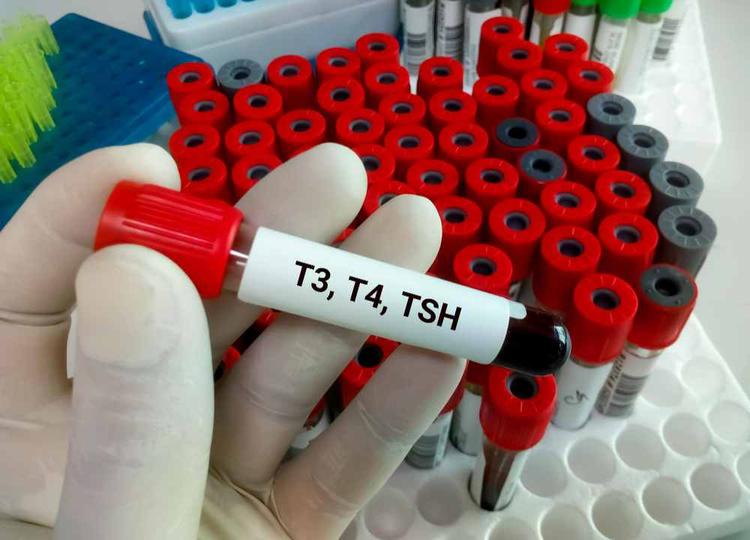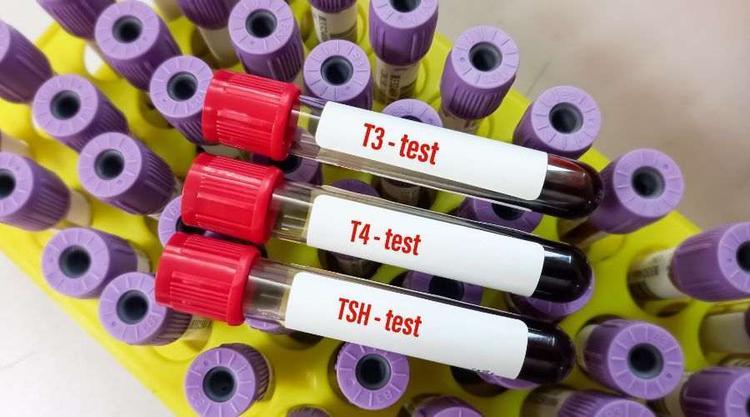Debunking Myths: Can Thyroid Cause Obesity?

Medically Reviewed By
Dr Divya Rohra
Written By Meenakshi
on Mar 6, 2024
Last Edit Made By Meenakshi
on Apr 26, 2024

Thyroid issues are common; you’ve probably heard about them from your friends, family, or coworkers. While it can affect anyone, it is more common in women; if we believe the studies, the risk of thyroid disorder is ten times higher in women than in men. Despite being a common health issue, there’s a lot of confusion or myths surrounding thyroid health. One such common thing about thyroid issues is that it is often blamed for causing Obesity. So, is it just a myth or fact? Let’s find the truth behind the statement, helping you better understand thyroid disorders and ensure effective management. So, let’s dig in to find more.
<p>
Understanding Thyroid Disorder:
Before debunking the myths surrounding the disorder, let’s understand what thyroid disorder is. It refers to the condition affecting the thyroid gland functioning, which is crucial for regulating metabolism, energy production, and various bodily functions. Thyroid Disorders are usually classified into two major forms: Hypothyroidism and Hyperthyroidism.
- Hypothyroidism: It occurs when the gland doesn’t make enough hormones, causing symptoms such as unexplained fatigue, weight gain, cold sensitivity, dry skin, and more complications.
- Hyperthyroidism: It is the second form that occurs when the gland produces more hormones than are required by the body, leading to symptoms such as weight loss, rapid heartbeat, sweating, and nervousness.
Both types can significantly influence our health and overall routine, but their management is possible if diagnosed early. Now, coming back to the question, do thyroid problems cause Obesity? Scroll down to find out:

Myth 1: Thyroid Problems Causes Obesity:
Fact: While Hypothyroidism can slow down the metabolism and is often linked with weight gain, it does not solely contribute to Obesity. Weight gain due to it is often modest and can be managed well with proper interventions.
The thyroid hormones significantly regulate the metabolism; when the function is impaired, it slows down its functioning, leading to weight gain. While thyroid disorders can cause weight fluctuations, they rarely lead to Obesity on their own. Obesity is another condition in itself and is caused due to several other factors.
Myth 2: Thyroid Hormones Mainly Contribute to Obesity
Fact: Thyroid disorders are not primarily associated with Obesity. Obesity is a multifactorial problem caused by a combination of genetic, environmental, and hormonal factors. While thyroid hormones lead in regulating metabolism, other hormones contribute to the complex interplay responsible for determining body weight.
So, it should not be solely blamed for causing Obesity. You need to look into the big picture for better clarity.
Myth 3: Everyone with Hypothyroidism Will Gain Weight
Fact: No, thyroid disorders affect every individual differently. Therefore, only some people with Hypothyroidism experience weight gain. While it is the common symptom of Hypothyroidism, it doesn’t affect everyone, and the degree of weight change may vary for every individual. Factors like age, gender, genetics, lifestyle choices, and diet can influence how thyroid disorders affect weight gain.
Each person’s experience is unique and requires a personalized approach to address the imbalance to manage the condition effectively.
Obesity is not solely linked with thyroid disorders and results from varied factors, including:

Factors That Contribute to Obesity Are:
- Caloric Imbalance: Excess calorie intake, coupled with a sedentary lifestyle, is one of the major causes of Obesity, leading to weight gain and other health issues.
- Genetic Predisposition: Genetics can predispose individuals to Obesity by influencing fat storage, metabolism, and appetite regulation. However, it alone cannot contribute to the problem; other factors have a crucial role.
- Lifestyle Choices: Other than your diet or genetics, your lifestyle choices primarily contribute to Obesity. Minimal physical activity, prolonged sitting, and poor dietary choices contribute to weight gain and Obesity over time.
While thyroid disorder can impact metabolism and contribute to weight changes, it’s vital to understand that Obesity is multi-faced and is influenced by varied factors. So, it would not be right to blame thyroid problems alone for Obesity. Rather, understanding the true causes of Obesity would be better, as it empowers one to take a proactive approach to managing weight effectively and promote overall wellness.
In short, the thyroid has a significant role in metabolism, causing fluctuations in weight; it’s not the sole determinant of Obesity. Debunking myths and embracing evidence-based information can help one make informed decisions for improved outcomes.
Besides understanding the cause, taking routine checkups seriously to track changes in health is essential for timely action. Whether you need Obesity Test or Thyroid Screening, Redcliffe Labs is the best Omnichannel Pan India Diagnostic Service Provider you can count on.
Redcliffe Labs - One Stop To Book Health Checkup!
- Thyroid Profile Test: You can book the thyroid profile test to assess the thyroid glands’ functioning and help diagnose hyperthyroidism and Hypothyroidism. It enables you to monitor changes in the thyroid gland, identify the problem early, and take proactive measures for effective management.
- Obesity Screening Package: If your doctor has suggested an Obesity Screening Package depending on your condition, get tested as soon as possible. The test will help you understand Obesity and determine the root cause contributing to it.
Besides, we offer a comprehensive range of routine to specialized health checkups under one roof at a highly affordable cost. Schedule the test to stay ahead of health complications.
Thyroid disorders and Obesity are both different and require attention for effective management. Therefore, understanding the root cause and getting tested promptly is essential to taking charge. So, don’t fall for such myths; always cross-check them with your healthcare providers to make the right health-related decisions.


